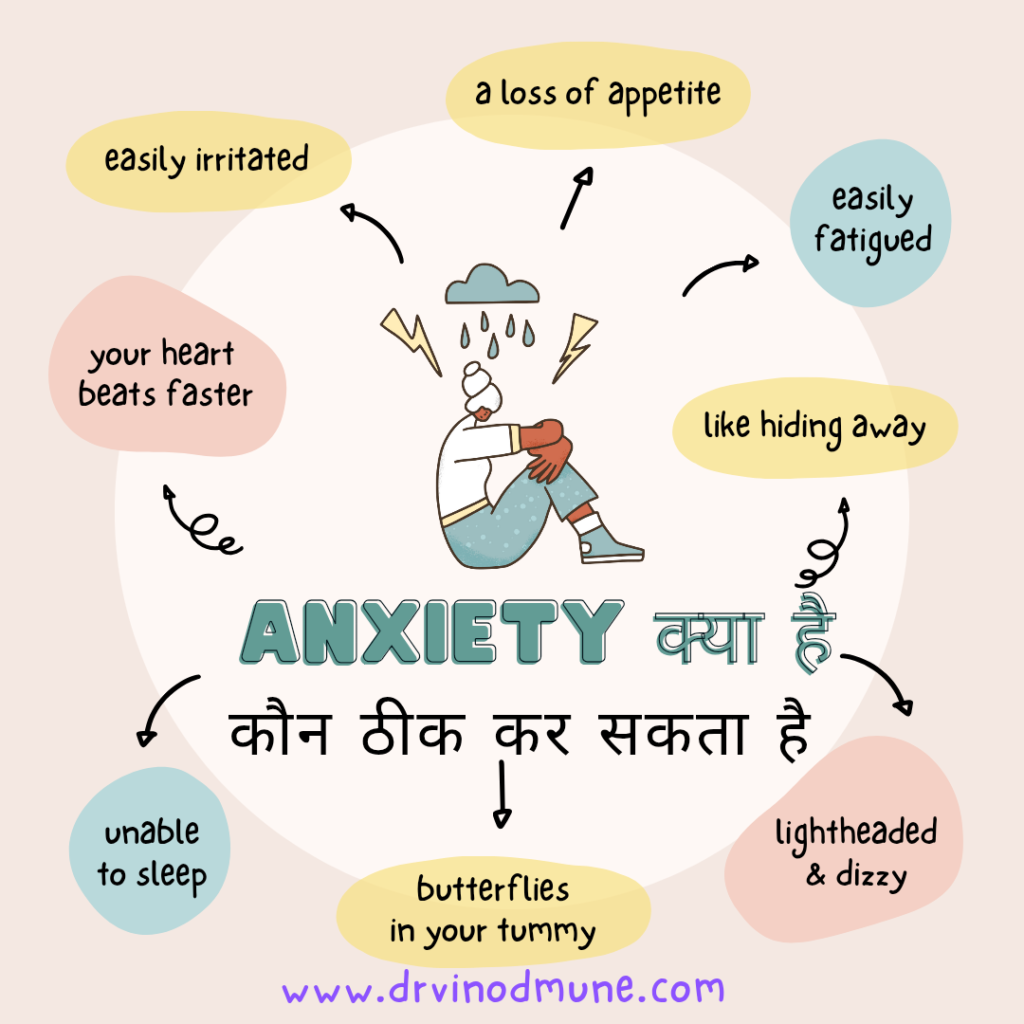Anxiety is a natural response to stress, but when it becomes persistent and overwhelming, it can interfere with daily life and well-being. It affects millions of people worldwide, and recognizing its symptoms is crucial for early intervention and proper management. In this article, we will explore the common symptoms of anxiety, helping you identify if you or someone you know may be struggling with this condition.
1. Physical Symptoms of Anxiety
Anxiety often triggers a wide range of physical symptoms. These are the body’s natural “fight or flight” response to perceived threats, but when anxiety becomes chronic, these symptoms can appear without any actual danger.
Increased Heart Rate:
One of the most noticeable physical symptoms of anxiety is a rapid or pounding heartbeat. This is due to the body’s preparation to respond to stress.
Shortness of Breath:
Feelings of breathlessness, shallow breathing, or even hyperventilation can occur, making the person feel as though they cannot catch their breath.
Muscle Tension:
Anxiety can cause muscles to become tight, which often leads to discomfort, headaches, or even muscle pain.
Sweating:
Increased sweating, especially on the palms, feet, or face, is common during anxious moments.
Dizziness or Lightheadedness:
The physical response to anxiety can sometimes cause dizziness, nausea, or a feeling of faintness.
Upset Stomach:
Anxiety can trigger digestive issues, such as nausea, stomach cramps, or diarrhea, due to the nervous system’s impact on the digestive system.
2. Emotional Symptoms of Anxiety
Anxiety is not only a physical experience but also has a significant impact on emotional and mental health. These symptoms can affect a person’s ability to concentrate, sleep, and even interact with others.
Constant Worry:
One of the hallmark symptoms of anxiety is persistent, excessive worry about everyday situations, even when there is no immediate threat. This constant rumination can be draining and overwhelming.
Irritability:
People with anxiety often find themselves feeling irritable or easily frustrated, sometimes with no clear reason.
Restlessness:
An anxious person may have trouble sitting still or may feel the need to move constantly due to an inner sense of unease.Difficulty Concentrating:
Anxiety can cloud one’s ability to focus, making it challenging to complete tasks or follow conversations.
Fear of the Worst-Case Scenario:
A person with anxiety may often focus on negative outcomes or catastrophize, anticipating the worst possible result in any given situation.
3. Behavioral Symptoms of Anxiety
In addition to physical and emotional symptoms, anxiety can also influence a person’s behavior and day-to-day functioning.
Avoidance:
People with anxiety may avoid certain situations, places, or activities that they associate with their anxious feelings. This can lead to social isolation or missing out on important events.
Sleep Disturbances:
Anxiety can interfere with sleep, leading to difficulty falling asleep, staying asleep, or waking up feeling unrested.Overthinking: Constantly overanalyzing situations or overthinking decisions is a common behavior among those struggling with anxiety.
Excessive Preparation:
People with anxiety may engage in excessive planning or preparation to reduce feelings of uncertainty, which can lead to perfectionism.
4. Cognitive Symptoms of Anxiety
Anxiety can significantly affect cognitive functions, such as memory and thought processes.Negative Thought Patterns: People with anxiety often experience intrusive negative thoughts, doubts about themselves, or fears about the future.
5.Impaired Memory:
Chronic anxiety can sometimes make it difficult to concentrate, leading to forgetfulness or memory issues.Difficulty Making Decisions: The fear of making mistakes or the pressure of potential consequences can cause someone with anxiety to struggle with even simple decision-making.
When to Seek Professional Help While occasional anxiety is a natural part of life, chronic or overwhelming anxiety requires attention. If anxiety symptoms interfere with daily life, relationships, or work, it may be time to seek professional help. Symptoms such as severe panic attacks, avoidance behaviors, or overwhelming worry may signal an anxiety disorder.A mental health professional, such as a therapist or counselor, can help diagnose the condition and recommend treatments, including Hypnotherapy,cognitive-behavioral therapy (CBT), medication, or lifestyle changes that can help manage symptoms

